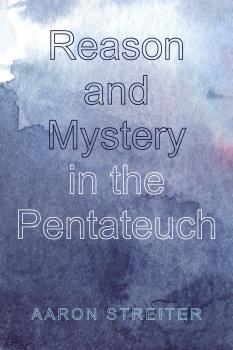ТОП просматриваемых книг сайта:
Aaron Streiter
Список книг автора Aaron StreiterАннотация
In the opinion of the present study, a masterwork of literature is a work that teaches human beings how to live, in a carefully constructed artifact; in venerable terms, a work that constructs a fable (a narrative) whose intellectual function is to convey an idea (what is taught). Every such work is passionately convinced of the seriousness of what is taught; and its passion is strictly disciplined by a narrative divided into parts that are internally coherent, and that appear in an order that cannot be changed. All five of the masterworks analyzed in the present study passionately teach, in splendid artifacts, that Christianity is adequate to the dangers of life, and capable of irradiating the human soul. The indispensable reference of all five is the Christian Bible; the God is the Father, the Son, and the Holy Spirit; the aspiration is salvation. The intent of all five–Spenser's The Faerie Queene (Book One), Shakespeare's Macbeth, Milton's Paradise Lost, Hawthorne's The Scarlet Letter, and Dostoyevsky's Crime and Punishment–is thus ad dei gloriam, the glorification of the God of Christianity.
Аннотация
Reason and Mystery in the Pentateuch is grounded in the faith that the following related truths are self-evident: God revealed to Moses two works, known together as the Torah. The first work is the Pentateuch (the Written Law), revealed as a book consisting mainly of a sacred history and a codex. The second work is the Mishnah (the Oral Law), an elucidation of the codex transmitted orally through many generations, then redacted as a book. The Torah has never been corrupted; the text read today is identical to the text God revealed to Moses. Because God, who is perfect, revealed the text, it must be perfect. Only in it must intent and execution be identical. And because God is essentially incomprehensible, the Pentateuch must be, at least in part, incomprehensible. The present book will interest traditionalist Christians, to whom, as to traditionalist Jews, the Pentateuch is sacred. It will interest readers not committed to the truths above for the insight it provides about readers for whom those truths are self-evident. For those readers, readers of faith, the Pentateuch must be not merely read, but continuously, intently, and reverentially studied. Reason and Mystery in the Pentateuch demonstrates how such study of the Pentateuch, considered as a literary artifact, may be conducted. In particular, it underscores the limits imposed by its Author upon the capacity of human intelligence to comprehend the plain meaning of its sacred history and its codex, and the linguistic strategy by which those limits are established.


